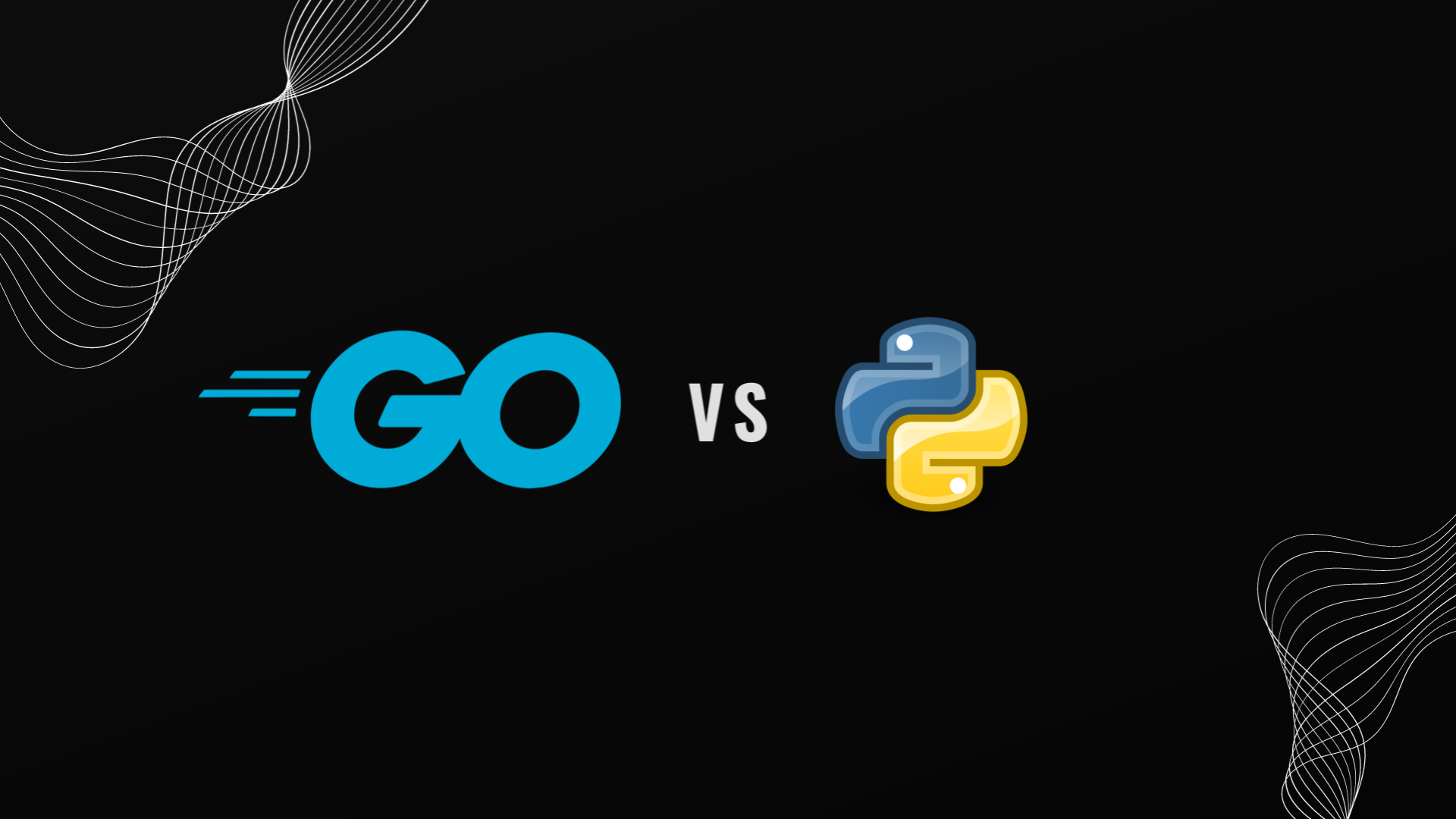Golang vs Python: API Performance Load Test
 Anubhav Singh
Anubhav Singh
In 2016, when I had started learning Python, I was increasingly convinced it would be the last programming language I would learn. After countless projects created with Python, a couple of technical books written, I am now learning Golang.
Why?
While working on Callchimp.ai, the team came across a requirement of an efficient multithreading component as part of the system infrastructure. We initially tried to pull it off using Python but the code kept getting very ugly very soon, along with being slightly beyond our understanding of how it was working.
Hence, I decided to take a page from the book of world's multithreading king - Google.
But before I could commit to re-writing the functionality of our component using Golang, I needed concrete numbers to support the "uh..its faster..like zip-zap-zoom faster" comparison of Golang with Python.
Here's a short walkthrough of how I put "zip-zap-zoom faster" into a number.
Create a minimal Golang server
First up, I created a barebones web server using Golang:
// server.go
package main
import (
"fmt"
"net/http"
)
func greetHandler(w http.ResponseWriter, r *http.Request) {
fmt.Fprintf(w, "Hello, visitor! You've requested: %s\n", r.URL.Path)
}
func main() {
// Register the greetHandler with the default mux (router)
http.HandleFunc("/", greetHandler)
// Start the web server on port 8080 and log any errors
fmt.Println("Starting server on :8080")
if err := http.ListenAndServe(":8080", nil); err != nil {
fmt.Printf("Error starting server: %s\n", err)
}
}
This I compiled to an executable and started its execution on port 8080 using the following commands:
go build -o mygoserver server.go
./mygoserver
Next, I needed an equivalent Python server.
Create a minimal Python server
Since I was relying on Golang's native http library for the server, it made sense to do the same for Python. Hence, a minimal equivalent server was written:
# server.py
from http.server import BaseHTTPRequestHandler, HTTPServer
class SimpleHTTPRequestHandler(BaseHTTPRequestHandler):
def do_GET(self):
self.send_response(200)
self.end_headers()
self.wfile.write(f"Hello, visitor! You've requested: {self.path}\n".encode())
def run(server_class=HTTPServer, handler_class=SimpleHTTPRequestHandler, port=8081):
server_address = ('', port)
httpd = server_class(server_address, handler_class)
print(f"Starting server on :{port}")
httpd.serve_forever()
if __name__ == "__main__":
run()
This, I ran on port 8081 using the following command:
python server.py
With the servers up and running, I was ready to start testing them.
Install a load test tool
To perform the load test, I needed an appropriate tool. I decided to use "rakyll/hey" for this - https://github.com/rakyll/hey. This amazing tool is super lightweight and (interestingly?) written in Golang.
Then I ran the following commands in sequence to generate outputs which I compiled in the table that comes afterwards:
Time taken to respond to 10,000 requests, 100 concurrent requests
time bash -c 'hey -n 10000 -c 100 http://localhost:8080/abc >> /dev/null'
time bash -c 'hey -n 10000 -c 100 http://localhost:8081/abc >> /dev/null'
How many requests can it respond to in 5 seconds, 100 concurrent requests
hey -z=5s -c 100 http://localhost:8080/abc
hey -z=5s -c 100 http://localhost:8081/abc
How many requests can it respond to in 5 seconds, 1 concurrent request
hey -z=5s -c 1 http://localhost:8080/abc
hey -z=5s -c 1 http://localhost:8081/abc
With the tests done, it was time for the moment of truth.
Compiling the results
After running the tests, I put together my findings in this table -
| Language | Requests | Concurrency | Time Taken | Errors |
| Python | 10000 | 100 | ~35s | 658 |
| Go | 10000 | 100 | ~0.149s | 0 |
| Python | 7948 | 100 | 5s | 30 |
| Go | 473766 | 100 | 5s | 0 |
| Python | 8176 | 1 | 5 | 0 |
| Go | 137703 | 1 | 5 | 0 |
Hence the verdict came out to be -
Single concurrent request: Golang is 17x faster than Python.
100 concurrent requests: Golang is 60x faster than Python.
Conclusion
Friends, Romans, countrymen, I am so learning Golang.
Subscribe to my newsletter
Read articles from Anubhav Singh directly inside your inbox. Subscribe to the newsletter, and don't miss out.
Written by
